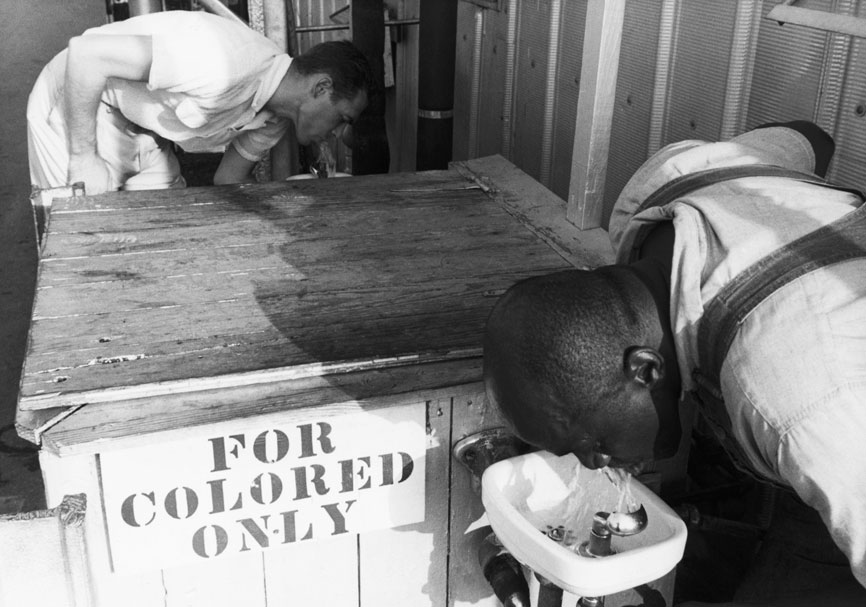
Notice the grammatical error in this sign! Love it!


Effectively the peaceful protestors in this book are saying it makes more sense to discriminate based on the color of socks than it does to discriminate based on the color of skin. This said, though, all their socks are different colors. Some have holes, etc. The color of either skin or socks is ultimately irrelevant. Humanity is comprised of a full rainbow of people, broken, ripped, and imperfect.
We discussed the community gathered around the water fountain - not just their physical appearances, but the powerful statement they were making, banding together in non-violent protest. As an extension to today's reading, students read about some of the Jim Crow laws in the South and they also read about other historical movements that used non-violent protest. They read about Gandhi in India and the non-violent tactics of Dr. Martin Luther King, Jr.

Write:
Instead of this:

This!
Effectively the peaceful protestors in this book are saying it makes more sense to discriminate based on the color of socks than it does to discriminate based on the color of skin. This said, though, all their socks are different colors. Some have holes, etc. The color of either skin or socks is ultimately irrelevant. Humanity is comprised of a full rainbow of people, broken, ripped, and imperfect.
We discussed the community gathered around the water fountain - not just their physical appearances, but the powerful statement they were making, banding together in non-violent protest. As an extension to today's reading, students read about some of the Jim Crow laws in the South and they also read about other historical movements that used non-violent protest. They read about Gandhi in India and the non-violent tactics of Dr. Martin Luther King, Jr.
Write about a time that you were brave and stood
up to those who didn’t extend respect to others. Using some of the articles that describe non-violent protests throughout history, explain how peaceful resistance to "bullying" is the most effective strategy.
No comments:
Post a Comment